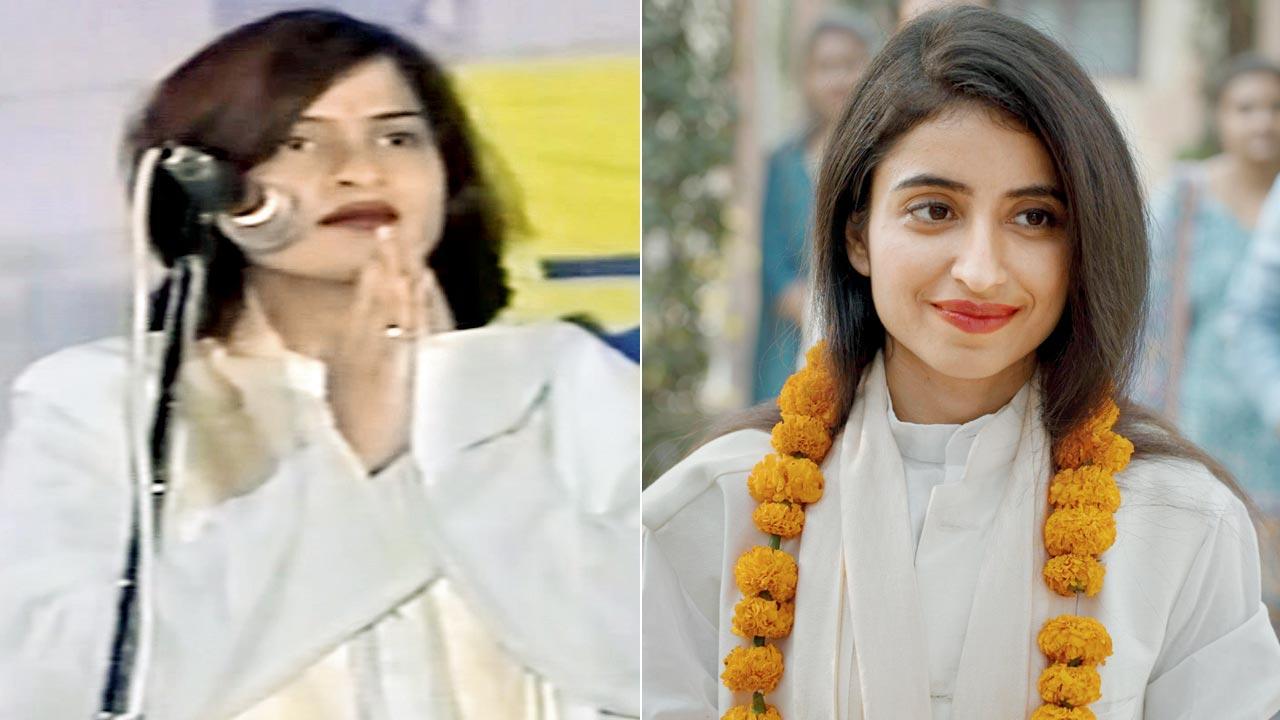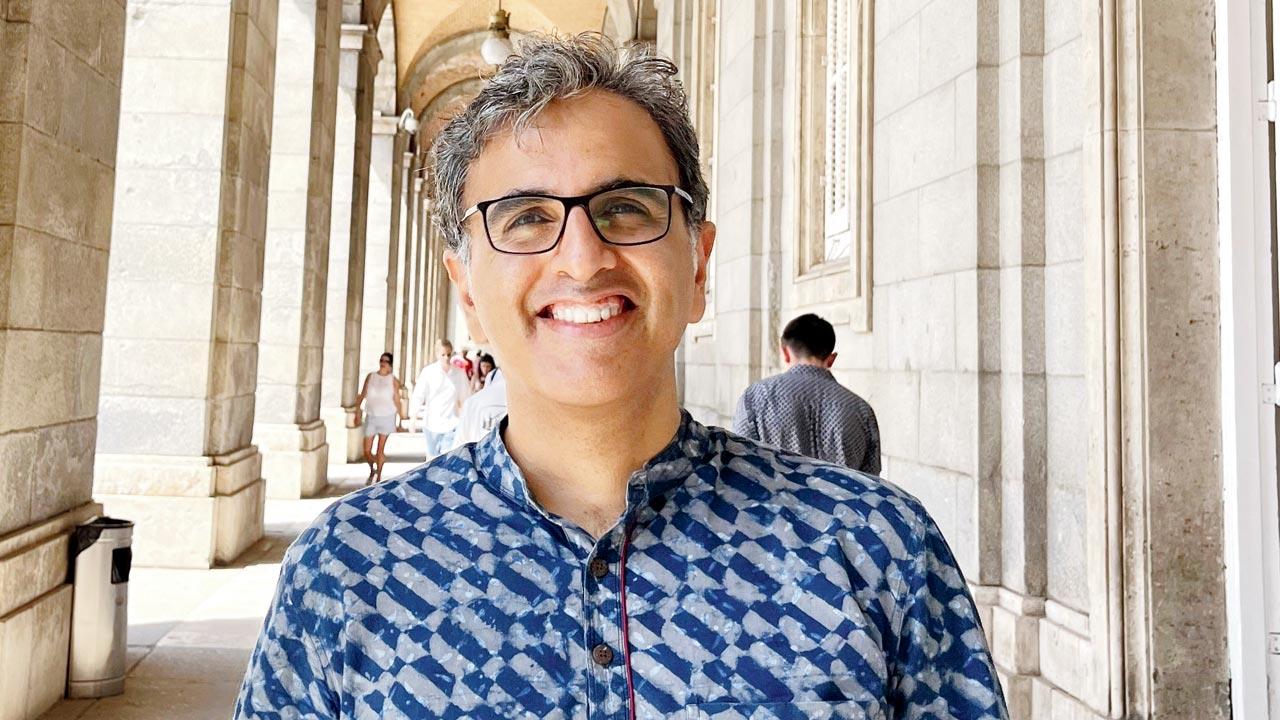Director Deepak says months of research went into making Love Kills, which revisits the 2003 murder case of Madhumita Shukla

Poet Madhumita Shukla; (right) An actor playing Shukla in the docu-series
In 2003, poetess-orator Madhumita Shukla’s murder case caught the country’s attention. Director Deepak Chaturvedi has revisited the case with Love Kills — Madhumita Shukla Hatyakand. While Shukla’s lover Amarmani Tripathi, [former] MLA and cabinet minister of the UP government, and wife Madhumani Tripathi are serving life sentence, the Discovery+ docu-series brings uncomfortable truths about the case to light. In a candid chat with mid-day, the director shares the concept, and revelations through the documentary.
ADVERTISEMENT
Edited excerpts from the interview.
What about the Madhumita Shukla murder convinced you to make the documentary?
From the get-go, I sensed that [what has come to light] is a lot less than what lies beneath the surface. [The story] is about flawed individuals. It’s a human story that has no heroes and villains. That convinced us to take it on.
What was your agenda behind it?
I had read a comment by a journalist who said that there is a partisan agenda. I can tell you that there was no agenda with this documentary. We went in with a clean slate. We did our research in three different stages — first table-top, then court documents and then, we started meeting people on the field. We spoke to so many people across the spectrum and gave them ample representation. I am a factual storyteller.
 Deepak Chaturvedi
Deepak Chaturvedi
As per your research, did you find the couple guilty or innocent?
We didn’t go in with any presumptions because investigation and court are a parallel universe, and the reality may not always reflect it. So, the kind of things Amarmani Tripathi and his wife Madhumani were up to, I think they belong where they are. We all know that they are guilty as charged, but there are several questions that need to be [answered]. The most elementary revelation is that the timeline doesn’t add up. As per the police and court records, the murder took place between 3 and 3.30 pm in the afternoon. But as per all the interviews we have done over three months, we found out that the murder took place between 11 am and 12 noon, which is a four-hour difference that no one bothered to explain. The cops were given first information around 3.30-4 pm, and the first respondent landed up at the crime scene by 6.45 pm. That does not align.
A person of interest, who supposedly hired contract killer Rohit Chaturvedi, is related to Tripathi’s family. The CBI and investigators got a confession out of him, which was most likely under duress, and that established [a connection between] the Tripathis and the actual shooters. The confession was rejected by the courts. We have tried to put those without any partisan agenda.
Also Read: From 'Money Mafia' to 'My Daughter Joined A Cult', 5 must-watch true-crime docuseries
Was there any political pressure to change the story or to not show any perspective?
We were all apprehensive that there might be some pushback or political pressure, but there was none whatsoever.
Where exactly did you think the investigation failed in this case?
I am not saying it has failed. Whatever research — court documents, chargesheet and evidence — is available, have been filed. No one can question the court, but there are a lot of layers that have not been [addressed]. The timeline [doesn’t add up], some call records were rejected by the court as was the recovery of the murder weapon. The investigation team prevented certain call details [from coming to light]. In the last episode, [we] point out these gaps.
 Subscribe today by clicking the link and stay updated with the latest news!" Click here!
Subscribe today by clicking the link and stay updated with the latest news!" Click here!







